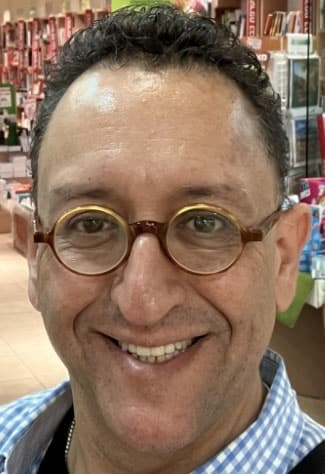There are powerful moments when life’s experiences bring deeper meaning to the Torah and her classic commentators.
It was Shabbat, June 5, 1982.
I was nearing the end of my first year abroad in Israel, and I spent that Shabbat in Haifa with my family. A few days earlier, on June 3, Israeli Ambassador to England Shlomo Argov was seriously wounded in an attack by three PLO terrorists. Reactions in Israel ranged from shock to outrage, and the winds of war were brewing.
I had a surreal experience at synagogue that Shabbat morning. The Torah portion was Beha’alotecha, which contains one of the most famous verses in the Torah: “Vayehi binso’a ha’aron vayomer Moshe, kuma Hashem, v’yafutsu oyvecha, v’yanusu m’san’echa mipanecha [When the ark was set forth, Moses would say, Advance, O Lord, may Your enemies be scattered, and may Your foes flee before You].” As we read this call to war by Moses, the synagogue’s building continuously shook to the rumbling of helicopters and F-15 fighter jets. When I peeked outside, I saw miles of Israel Defense Forces (IDF) jeeps, tank transporters and armored personnel carriers, all heading north. I had a front-row view of the IDF’s massive call-up of troops on their way to the region’s first real “war on terror.”
The Netziv commentary to the Torah says that the word “oyvecha” (your enemies) means “one who hates you deeply in his heart, and wishes nothing but to inflict harm upon you.” Rashi says that the word “m’san’echa” (your foes) means “those who pursue you with the intent to kill you.” These words from our Torah portion were what I both heard and felt that Shabbat as the IDF entered Lebanon, where the PLO had built a terrorist “state within a state.” Moses’ call to war rang clearly as the IDF was on its way to confront an enemy whose long record of hatred, harm and pursuit with the intent to kill included hijackings, massacring school children and staining the Olympics with bloodshed.
What does it mean to go to war and confront an evil enemy? You never really understand that until it gets up close and personal. I learned that part of the parasha the next morning, June 6 — the first formal day of the Lebanon War.
Through heavy traffic, I made my way back to my yeshiva. I attended Kerem B’Yavneh, a Hesder yeshiva where Israeli young men enroll in a five-year program that combines Torah study with service in IDF combat units. I studied there during the second semester of my senior year of high school, and I was scheduled to return to Los Angeles that week for my YULA graduation.
Running from the bus stop, I went straight to the beit midrash, where my chevrutah (study partner) waited for me. “Let’s begin studying, we don’t have much time,” he said. I didn’t understand what he meant, but I soon found out. I once again heard jeeps screeching outside, along with buses. Two IDF officers came into the beit midrash, which was filled with hundreds of young men studying Talmud. They approached the front of the room, and a sudden silence fell over us as they began to read names and numbers.
I sat there watching the entire beit midrash clear out. When my chevrutah’s name was called, he looked at me with a smile and said, “I have to go now, please promise me that you won’t leave, and I promise you that I will return here to continue our studies.” He hugged me and ran out.
I followed him to see all of the boys and some of the rabbis boarding the buses with their IDF duffle bags. Along with my chevrutah were Chovav Landau, who always opened his home to us students from abroad, and Yehuda Katz, who was one of the yeshiva’s top Talmud students.
As the buses rolled away, I witnessed something incredible. With full awareness that they were on their way to war, these boys broke out into songs of faith in God. The buses rolled away in the dust, and the voices of hundreds of boys faithfully singing continued to echo in my heart. I went back into the beit midrash, where about 25 of us remained.
I never went back for my YULA graduation. Instead, that summer included attending Chovav’s funeral, studying in the beit midrash (my chevrutah did return) and reciting psalms for the return of Yehuda Katz (who is missing in action until this day).
Thirty years later, I continue to pray for Yehuda’s return, much like I pray that this generation will not have to endure another war. Moses indeed declares a “Call to War,” and despite this, the Israeli governments have made multiple “Calls to Peace.” Are the Palestinians listening?
Rabbi Daniel Bouskila is the director of the Sephardic Educational Center (SEC), an international organization with its own campus in the Old City of Jerusalem. He is currently launching the SEC’s new Makor program (makorjerusalem.org).





















 More news and opinions than at a Shabbat dinner, right in your inbox.
More news and opinions than at a Shabbat dinner, right in your inbox.